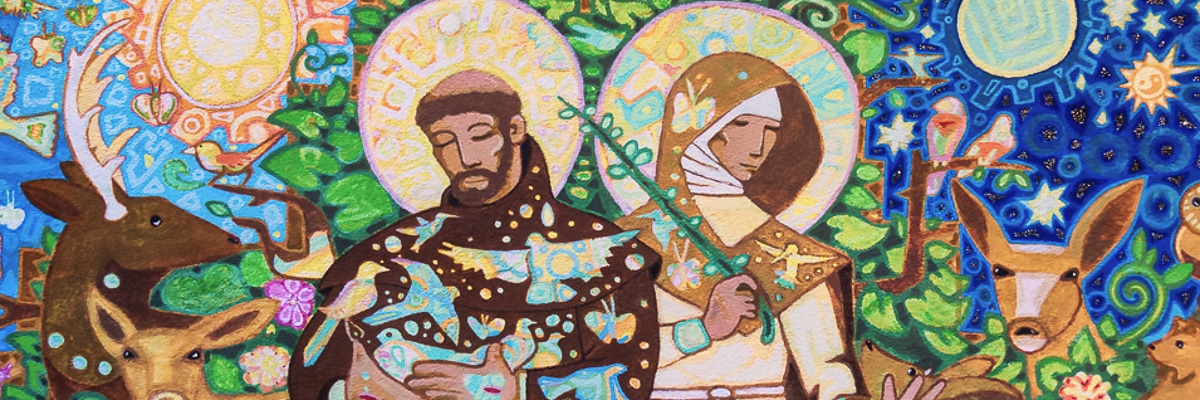
I only know that I did not know what love was until I encountered one that kept opening and opening and opening.
—Christian Wiman, My Bright Abyss
Father Richard Rohr describes the “eagerness to love” that characterized the life and spirituality of St. Francis of Assisi (1182–1226):
If our only goal is to love, there is no such thing as failure. Francis of Assisi succeeded in living in a single-hearted way, in which his only goal was to love. This intense eagerness to love made his whole life an astonishing victory for the human and divine spirit and showed how they work so beautifully together.
That eagerness to love is the core and foundation of Francis’ spiritual genius. He encountered a love that just kept opening to him, and then he passed on the same by “opening and opening” to the increasingly larger world around him. He willingly fell into the “bright abyss,” [1] as poet Christian Wiman calls it, where all weighing and counting are unnecessary and even burdensome.
After his conversion, Francis lived the rest of his life in an entirely different economy—the nonsensical economy of grace, where two plus two equals a hundred and deficits are somehow an advantage. Such transformation of the soul, both in the inflowing and in the outflowing, is the experiential heart of the gospel for Francis. He then brought the mystery of the cross to its universal application, for he learned that both the receiving of love and the letting go of it for others are always a very real dying to our present state. Whenever we choose to love we will—and must—die to who we were before we loved. So, we often hold back. Our former self is taken from us by the object of our love. We only realize this is what’s happened after the letting go, or we would probably always be afraid to love.
Richard points to the simplicity that makes Francis’ ministry special:
For Francis, the medium had to be the same as the message—or the message itself would get quickly lost. Only love can search for, give, or receive love. It’s almost that simple. Francis created a very different classroom for his followers, sort of an underground seminary, if you will, where we Franciscans had to live faith before we talked about faith. Our Rule was initially just “tips for the road,” an itinerant and mendicant lifestyle, both an urban plunge and total solitude in nature, where love could be tasted and touched, much more than a formal seminary classroom where it might just be defined.
In the Franciscan reading of the gospel, there’s no reason to be religious or to love God except in recognizing “The love of [God] who loved us greatly is greatly to be loved,” as Francis said. [2] Religion is not about heroic willpower or winning or being right. This has been a counterfeit for holiness in much of Christian history. True growth in holiness is a growth in willingness to be loved and to love.
References:
[1] Christian Wiman, My Bright Abyss: Meditation of a Modern Believer (New York: Farrar, Straus and Giroux, 2013), 3.
[2] Thomas of Celano, The Remembrance of the Desire of a Soul 148, in Francis of Assisi: Early Documents, vol. 2, The Founder (Hyde Park, NY: New City Press, 2000), 373.
Adapted from Richard Rohr, Eager to Love: The Alternative Way of Francis of Assisi (Cincinnati, OH: Franciscan Media, 2014), 191–192, 197, 104.
Image credit and inspiration: Dimitri Kadiev, Be Praised—mural of Francis and Clare on the side of the CAC (detail), photo of paint on adobe wall. Click here to enlarge image. This mural art on the outside of the CAC represents Francis’ love and acceptance of life in its varied and diverse manifestations.
Story from Our Community:
St. Francis’ love of creation as shared by Fr Richard has completely changed the way I treat ants. I used to sweep them away. Not anymore…. I was eating cookies and some crumbs fell. My wife who was sitting nearby noticed small ants carrying a crumb away and was about to sweep the ants. I stopped her and even took a video of the phenomenon. I was astounded by how much my own attitude towards all of creation has changed from dismissal to awe.
—Ed S.




